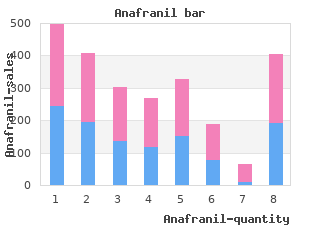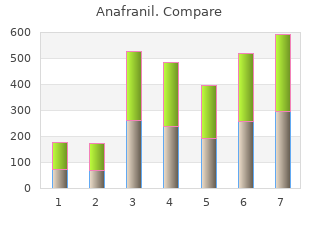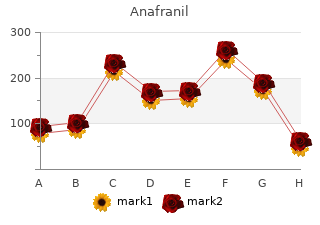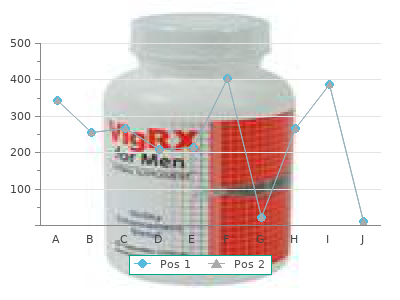Anafranil
By A. Mine-Boss. Franklin University. 2019.
David: Judith order anafranil 10mg mastercard, we get many people who write us saying that rather than telling anyone about their eating disorder generic anafranil 10 mg without prescription, they want to handle recovery on their own. What do you think about that concept of handling bulimia recovery on your own? If you try to do this on your own, you miss the opportunity to see that people are good and willing to help you. All studies show that friendship enhances health and the immune system and isolation increases mental and physical illness. As a psychotherapist, I believe that cure is easier when we help each other. The illness is already isolating, but if you are absolutely intent on doing this by yourself, then nothing can sway you. Every person has his or her right to do it their way. If you want to overcome an eating disorder, keep a journal and let your journal become your mirror and your friend. Stay in touch with your feelings, plan your menus, write down your feelings after you eat instead of purging. In other words, use your journal as your key to your own psyche. Here are a few audience comments on sharing the news of your eating disorder with someone else and the idea of recovering from bulimia on your own:gillian1: I have told my mum about my bulimia, but she handled it badly so I covered up what I said with lying. The problem is that I told my doctor before I told my mum. I also find it discouraging, the way my parents treat me since they found out about my eating disorder. Judith Asner: A food journal and meal planning are 2 of the most important tools in overcoming an eating disorder. Changing your negative self talk, self-concept is also important. David: Could you go into a bit more detail about the food journal and what that is and what doing one accomplishes? Judith Asner: A food journal brings order to a chaotic eating situation. Bulimia was originally called dietary chaos syndrome. A person with bulimia, as you all know, binges in an uncontrolled way. A food diary will do the following:it will allow you to plan your meals ahead of time. By using the food journal, you will begin to know when you are really hungry versus when you eat and are not hungry. It will allow you to track your negative thoughts before you binge. Judith Asner: Cassiana, yes that is an eating disorder. But what if a person has grown up in a great environment. It can be a great environment with wonderful people, but they may have high expectations or it may be how you perceive what you see in the media. There are cultural and other influences, not just the family. TV, peer groups, and the fashion industry are factors also. Usually there is some element of self-esteem, when a person meets cultural expectations and ideal body types and some sense of dissatisfaction with the self. Judith Asner: latlat, I think the parents need to get support or the parent will get very depressed. I suggest support groups for parents with eating disordered children. By going to a support group, the parents will typically get some distance from the illness that will allow the teenager to get some treatment eventually. I think the parents need to first get help for themselves. You can only go to treatment for yourself and then hopefully the teenager will become curious with the process and want to join in. Now if the eating disorder, bulimia or anorexia, becomes life-threatening, a parent can force the teenager into treatment. And, of course, they are scared and want to take immediate action. Judith, what do you think about a parent who tries to FORCE their child into treatment?
This imbalance contributes to long-term diseases such as heart disease discount anafranil 10 mg without a prescription, cancer order 25 mg anafranil fast delivery, asthma, arthritis, and depression. For optimum health and disease prevention, the balance should consist of one to four times more omega-6 fatty acids than omega-3 fatty acids. A typical American diet, however, tends to contain 11 to 30 times more omega-6 than omega-3 fatty acids. In contrast, a Mediterranean diet is made up of a healthier and more appropriate balance between omega-3 and omega-6 fatty acids. The Mediterranean diet includes a generous amount of whole grains, fresh fruits and vegetables, fish, olive oil, and garlic; plus, there is little meat, which is high in omega-6 fatty acids. There are several different types of omega-6 fatty acids. Most omega-6 fatty acids are consumed in the diet from vegetable oils as linoleic acid (LA; be careful not to confuse this with alpha-linolenic acid [ALA]gamma-linolenic acid (GLA) in th which is an omega-3 fatty acid). Linoleic acid is converted to e body and then further broken down to arachidonic acid (AA). AA can also be consumed directly from meat, and GLA can be ingested from several plant-based oils including evening primrose oil (EPO), borage oil, and black currant seed oil. Excess amounts of LA and AA are unhealthy because they promote inflammation, thereby leading to several of the diseases described above. Much of the GLA taken as a supplement is not converted to AA, but rather to a substance called dihomogamma-linolenic acid (DGLA). DGLA competes with AA and prevents the negative inflammatory effects that AA would otherwise cause in the body. In addition, DGLA becomes part of a particular series of substances, called prostaglandins, that can reduce inflammation. Having adequate amounts of certain nutrients in the body (including magnesium, zinc, and vitamins C, B3, and B6) helps promote the conversion of GLA to DGLA rather than AA. It is important to know that many experts feel that the science supporting the use of omega-3 fatty acids to reduce inflammation and prevent diseases is much stronger than the information regarding use of GLA for these purposes. Some clinicians and preliminary research suggest that omega-6 fatty acids may be useful for the following purposes:Studies suggest that women, and possibly men, with anorexia nervosa have lower than optimal levels of PUFAs and display abnormalities in the use of these fatty acids in the body. To prevent the metabolic complications associated with essential fatty acid deficiencies, some recommend that treatment programs for anorexia nervosa include PUFA-rich foods such as organ meats and fish. Omega-6 for attention deficit/hyperactivity disorder (ADHD) Studies suggest that children with attention deficit/hyperactivity disorder (ADHD) have lower levels of EFAs, both omega-6s and omega-3s. Given the relationship of EFAs to normal brain and behavioral function, this makes sense. Because of this logical connection and the low levels of EFAs measured in those with attention deficit/hyperactivity disorder (ADHD), scientists have speculated that replacement of EFAs through food or supplements may help lessen the behaviors and symptoms of this condition. Research to date has suggested an improvement in symptoms and behaviors related to attention deficit/hyperactivity disorder (ADHD) froHTTP/1. Low levels of Selenium are associated with heart disease, HIV, miscarriage and female and male infertility. Learn about the usage, dosage, side-effects of Selenium. Selenium is an essential mineral found in trace amounts in the human body. It works as an antioxidant, especially when combined with vitamin E, by scavenging damaging particles in the body known as free radicals. These particles occur naturally in the body but can damage cell membranes, interact with genetic material, and possibly contribute to the aging process as well as the development of a number of conditions including heart disease and cancer. Antioxidants such as selenium can neutralize free radicals and may reduce or even help prevent some of the damage they cause. Selenium is needed for the proper functioning of the immune system and for the production of prostaglandins (substances that affect blood pressure and inflammation in the body). Low levels of selenium may worsen atherosclerosis (plaque buildup in arteries which can lead to heart attack and/or stroke) and can lead to premature aging. Selenium deficiencies have also been linked with certain types of cancer. Many of the benefits of selenium are related to its role in the production of the enzyme glutathione peroxidase. This enzyme is responsible for detoxification in the body. Chronic exposure to environmental toxins, including chemotherapy drugs, radiation and other toxic medicines, increases the requirement for selenium. Tobacco decreases absorption of selenium in the digestive tract. In addition, many smokers have poor dietary habits and eat fewer foods containing selenium. Low blood levels of selenium can contribute to heart failure.


Some research suggests that an antibody against strep throat bacteria sometimes mistakenly acts like a brain enzyme proven anafranil 75 mg. This disrupts communication between neurons in the brain and may trigger OCD anafranil 75mg amex. For comprehensive information on obsessive-compulsive and other types of anxiety disorders, visit the Anxiety-Panic Community. Diagnostic and Statistical Manual of Mental Disorders, Fourth Edition. Merck Manual, Home Edition for Patients and Caregivers, last revised 2006. Full description of Obsessive-Compulsive Personality Disorder (OCPD). Definition, signs, symptoms, causes of Obsessive-Compulsive Personality Disorder. About 16 million Americans, or 8-percent of the population have Obsessive-Compulsive Personality Disorder, making it one of the most prevalent personality disorders in the U. Rigid adherence to rules and regulations and an overwhelming need for order and personal control are the primary characteristics of obsessive compulsive personality disorder. People living with OCPD are inflexible, perfectionists and unwilling to yield responsibilities to others. They are reliable, dependable, orderly, and methodical, but their inflexibility makes them unable to adapt to change. Because they are cautious and weigh all aspects of a problem, they have difficulty making decisions. According to the Merck Manual, "people with an obsessive-compulsive personality are often high achievers, especially in the sciences and other intellectually demanding fields that require order and attention to detail. However, their responsibilities make them so anxious that they can rarely enjoy their successes. Many people confuse Obsessive-Compulsive Personality Disorder (OCPD) with Obsessive-Compulsive Disorder (OCD). People with OCD are often aware that their obsessions are abnormal, but are compelled to perform them anyway. People with obsessive compulsive personality disorder, however, believe their need for strict order and rules is perfectly normal. A pervasive pattern of preoccupation with orderliness, perfectionism, and mental and interpersonal control, at the expense of flexibility, openness, and efficiency, beginning by early adulthood and present in a variety of contexts, as indicated by four (or more) of the following:is preoccupied with details, rules, lists, order, organization, or schedules to the extent that the major point of the activity is lostshows perfectionism that interferes with task completion (e. Parenting styles and family dynamics may also play a role in the development of OCPD. One theory suggests that as children, people with Obsessive-Compulsive Personality Disorder were consistently punished for negative behavior, failure, and rule-breaking, while receiving no praise for success and compliance. To avoid punishment, the child develops a habit of rigidly following rules that lasts into adulthood. For comprehensive information on obsessive-compulsive and other personality disorders, visit the Personality Disorders Community. Full description of Oppositional Defiant Disorder (ODD). Definition, signs, symptoms, causes of Oppositional Defiant Disorder. All kids, especially very young children, are defiant, express anger, or talk back at some time or another. However, when the behavior becomes increasingly hostile, is a serious concern for parents, teachers and other adults, starts affecting family, friends and school performance, and continues for a significant amount of time, the child may be diagnosed with Oppositional Defiance Disorder. Children with Oppositional Defiant Disorder are stubborn, difficult, and disobedient without being physically aggressive or actually violating the rights of others. The Merck Manual reports ODD usually develops by age 8. There are various statistics on the incidence of Oppositional Definance Disorder in the U. Numbers range from 2-16% of children and teens in the U. Typical behaviors of children with Oppositional Defiant Disorder include arguing with adults; losing their temper; actively defying rules and instructions; blaming others for their own mistakes; and being angry, resentful, and easily annoyed. These children do know the difference between right and wrong and feel guilty if they do anything that is seriously wrong. The behaviors do not occur exclusively during the course of a Psychotic or Mood Disorder.


